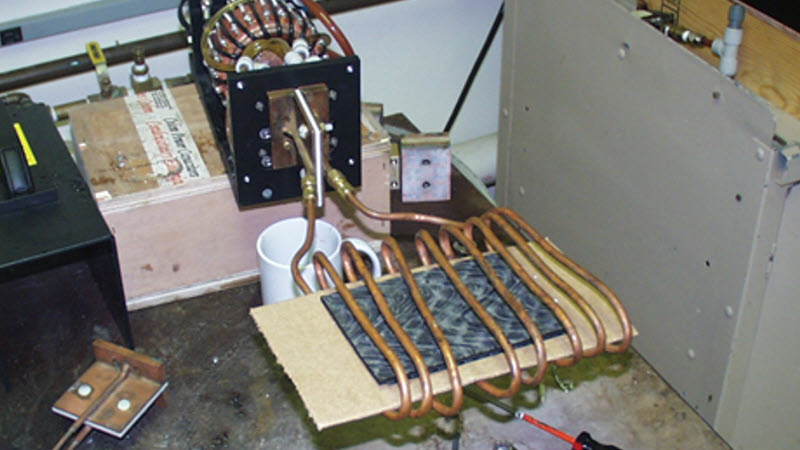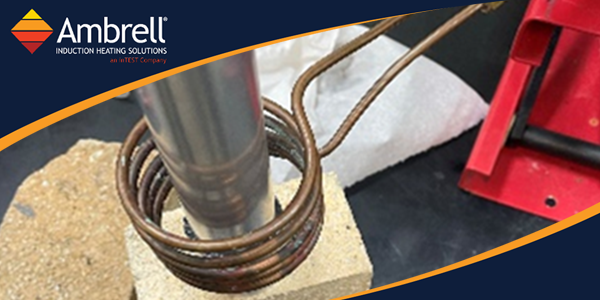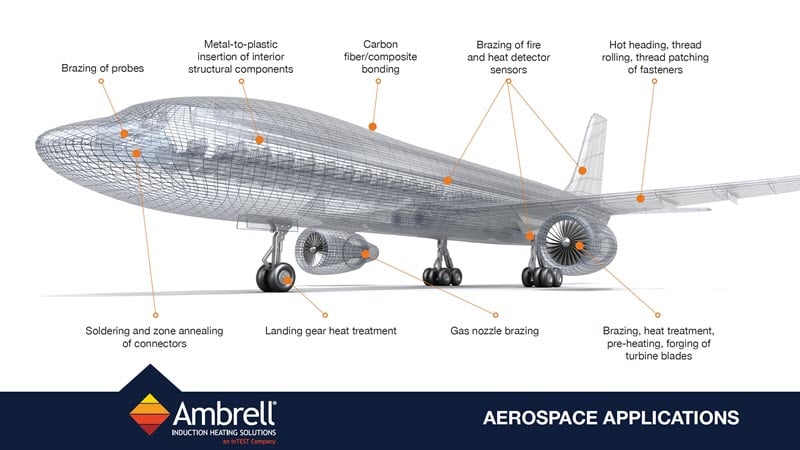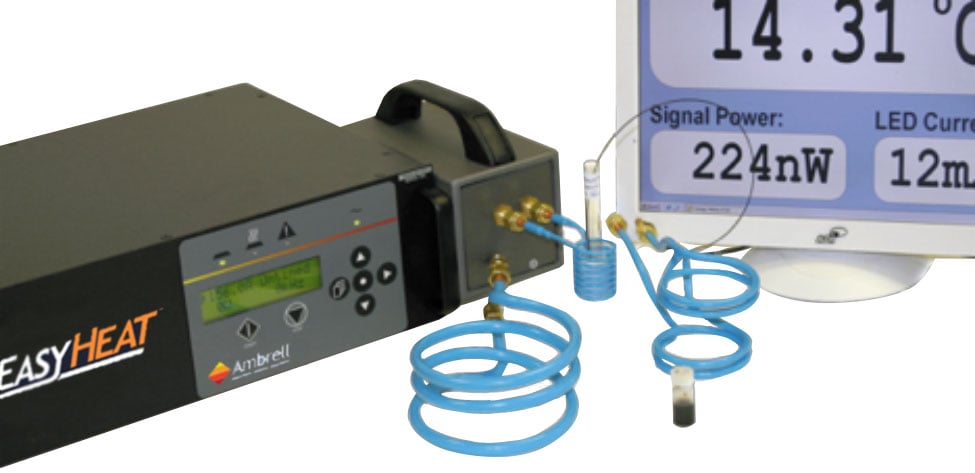Induction Brazing an Aluminum Assembly
Objective A company wanted to assess using induction heating for their aluminum assembly brazing process, and contacted THE LAB at Ambrell to utilize...
Applications
Applications: More
Applications: More

Industries:
Industries: More
Industries: More
Industries: More

Products:
Products: More
Services:
Services: More

Learn:
Learn: More
About:


A client came to THE LAB at Ambrell needing to bond a stainless-steel sheet to a soundproofing mat. They were using an oven, but were having quality issues so they wanted to assess induction heating.
More induction bonding application notes
THE LAB determined that an Ambrell EASYHEATTM 4.2 kW, 150-400 kHz induction heating system would work well for this bonding application along with a workhead and coil specifically designed for this application. The assembly needed to be heated to 300 ºF (149 ºC).
Initial tests were conducted to optimize the power delivered to the assembly. The part was assembled with the mat in contact with the stainless-steel sheet. The assembly was then set on non-conductive material and placed inside the coil. The EASYHEAT power supply was turned on, the part was heated, and the power supply was then turned off – the process took just three seconds. Lastly, the part was air cooled and the bonding application was completed. The timing and quality met the client's requirements.
Induction heating offers several benefits for this application when compared to other heating options like oven heating. First, with bonding only taking three seconds and the mat applied during heating, it accelerates the production rate/throughput when compared to an oven. Additionally, induction heating only heats the part, which saves energy, while not melting the sound proofing mat since the mat is not conductive. Finally, it delivers consistent, repeatable heat that forms a reliable bond.
If you have an application that might benefit from parts testing, contact THE LAB to take advantage of complimentary induction heating application testing from our knowledgeable applications team. Additionally, we have Virtual Lab Service so you can observe testing live from your office. And, whether you choose Virtual Lab Service or not, we'll always send you a video and lab report after testing so you can assess the results.

Objective A company wanted to assess using induction heating for their aluminum assembly brazing process, and contacted THE LAB at Ambrell to utilize...

Induction heating is a process that uses electromagnetic fields to heat electrically conductive materials. It has been used in numerous industries...

Induction heating, a process that uses electromagnetic induction to heat electrically conductive materials, is often thought of for large industrial...